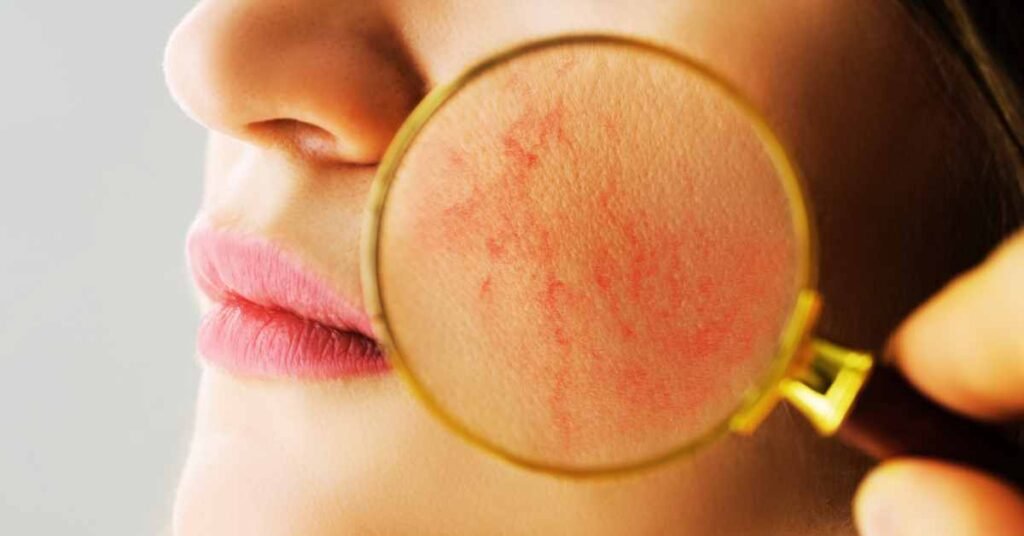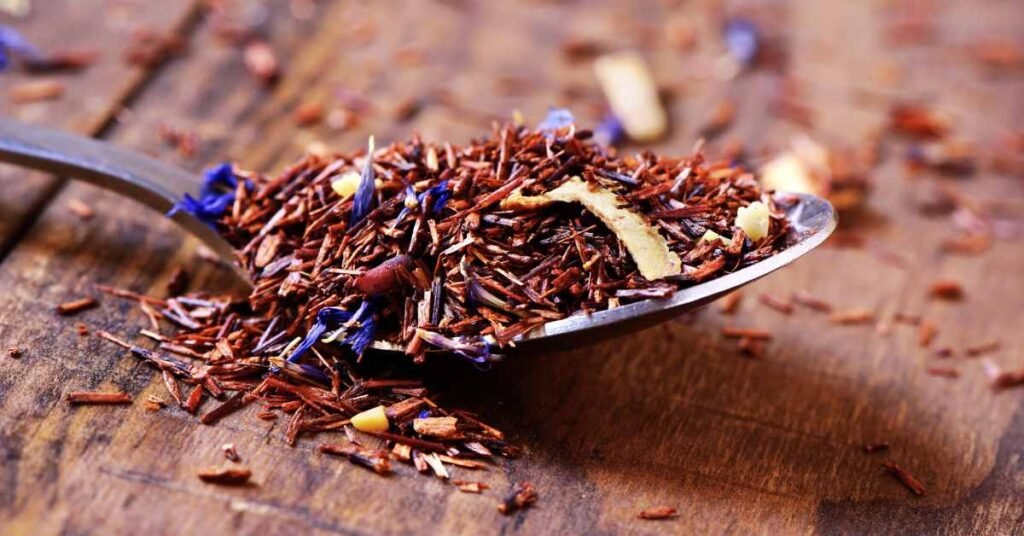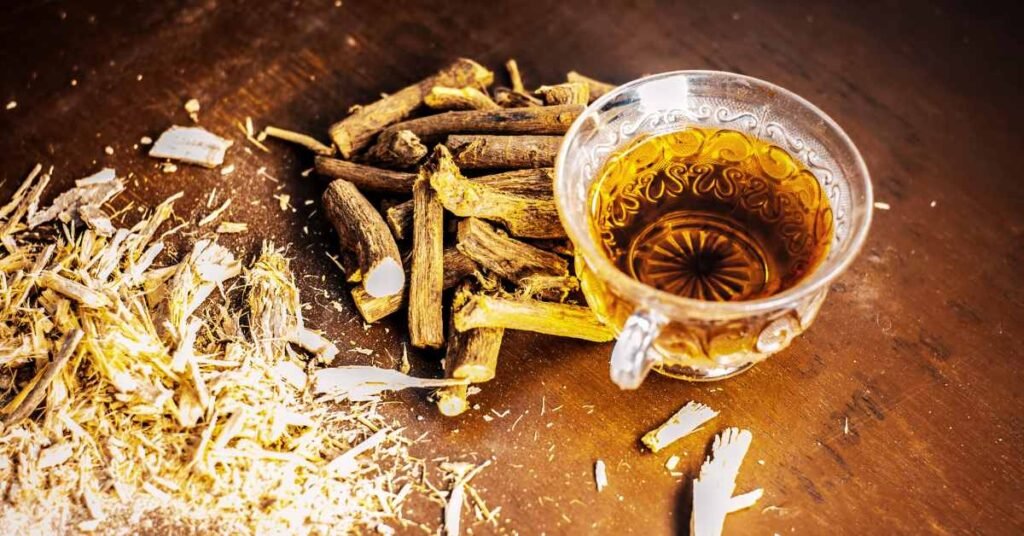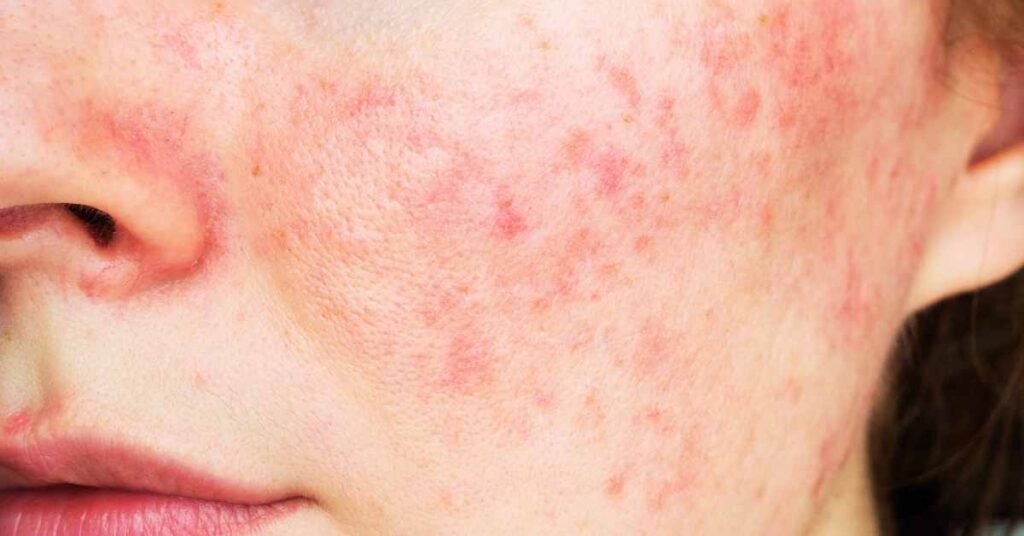Rosacea, a chronic skin condition characterized by redness, flushing, and visible blood vessels, can be a source of discomfort and self-consciousness for those who suffer from it.
While there is no cure for rosacea, various lifestyle changes and skincare routines can help manage its symptoms.
One often-overlooked yet powerful avenue for relief lies in the world of teas.
Packed with antioxidants, anti-inflammatory properties, and other beneficial compounds, certain teas can work wonders in calming rosacea flare-ups.
Let’s explore the soothing elixirs that can bring a sense of relief to those navigating the challenges of rosacea.
Chamomile Tea: Nature’s Calming Balm

Chamomile tea, derived from the dried flowers of the chamomile plant, is renowned for its calming and anti-inflammatory properties.
Rich in antioxidants, including apigenin, chamomile helps reduce skin redness and irritation associated with rosacea.
The tea’s gentle nature makes it suitable for sensitive skin, soothing the discomfort caused by inflamed blood vessels.
Brew a cup of chamomile tea and allow it to cool before applying it topically as a compress. The anti-inflammatory effects can be felt both internally and externally, providing a double dose of relief for rosacea sufferers.
Additionally, incorporating chamomile tea into your daily routine may contribute to overall stress reduction, another factor that can exacerbate rosacea symptoms.
Green Tea: A Potent Potion for Rosacea
Green tea, celebrated for its myriad health benefits, is a treasure trove of polyphenols, catechins, and antioxidants.
Among its many virtues, green tea possesses anti-inflammatory properties that can be particularly beneficial for those with rosacea.
The key player here is epigallocatechin gallate (EGCG), a powerful compound that helps soothe irritated skin and reduce redness.
Regular consumption of green tea can contribute to overall skin health, combating the effects of free radicals and promoting collagen production.
The tea’s antioxidant-rich profile aids in neutralizing oxidative stress, a common trigger for rosacea flare-ups.
As a delicious and versatile beverage, green tea can be enjoyed both hot and cold, providing a refreshing solution for rosacea sufferers.
Rooibos Tea: The South African Soother

Native to South Africa, rooibos tea is a caffeine-free herbal infusion with remarkable anti-inflammatory and antioxidant properties.
Packed with quercetin, a natural anti-allergic agent, rooibos tea can help alleviate the itching and burning sensations often associated with rosacea.
Its soothing effects extend beyond the skin, promoting a sense of calm that can be particularly beneficial for those dealing with the emotional toll of rosacea.
Rooibos tea can be incorporated into your skincare routine by using it as a facial toner.
Simply brew a strong cup, let it cool, and apply it to the affected areas with a cotton pad. The tea’s natural healing properties can reduce inflammation and promote a more even skin tone over time.
Lavender Tea: Aromatic Relief for Rosacea
Lavender tea, derived from the fragrant lavender plant, is not only a delight for the senses but also a potential ally in the fight against rosacea symptoms.
Known for its calming aroma and anti-inflammatory properties, lavender tea can help soothe irritated skin and reduce redness.
The application of lavender tea as a topical compress or mist can provide instant relief during rosacea flare-ups.
Inhaling the calming scent of lavender tea may also contribute to stress reduction, a crucial factor in managing rosacea symptoms.
Incorporate lavender tea into your daily routine, and let its gentle touch bring a sense of tranquility to your skin and soul.
Licorice Root Tea: Nature’s Skin Soother

Licorice root tea, brewed from the root of the Glycyrrhiza glabra plant, boasts anti-inflammatory and anti-microbial properties that can benefit rosacea-prone skin.
The presence of glycyrrhizin in licorice root helps reduce redness and inflammation, offering relief to those struggling with the visible effects of rosacea.
When consumed as a tea, licorice root can help regulate cortisol levels, the stress hormone known to trigger rosacea flare-ups.
However, it’s essential to consume licorice root tea in moderation, as excessive intake may lead to side effects.
As with any herbal remedy, it’s advisable to consult with a healthcare professional before incorporating licorice root tea into your routine.
Final Word
In the quest for managing rosacea, exploring the world of teas can be a delightful and effective journey.
From the calming properties of chamomile to the antioxidant-rich goodness of green tea, each variety offers a unique set of benefits for alleviating rosacea symptoms.
Experiment with different teas to find the ones that resonate with your taste buds and provide the most relief for your skin.
Remember, while teas can be a valuable addition to your rosacea management plan, it’s essential to approach skincare holistically.
Adopting a gentle skincare routine, avoiding known triggers, and consulting with a dermatologist can all contribute to a comprehensive strategy for managing rosacea.
Embrace the soothing elixirs nature has to offer, and let the comforting warmth of a cup of tea become a ritual in your journey towards healthier, happier skin.
MEDICAL DISCLAIMER
Itsnevernotteatime.com cannot and does not contain medical/health advice. The medical/health information is provided for general and educational purposes only and is not a substitute for professional advice.




